Could a cup of elderberry tea be your ticket to better health? Discover how elderberry tea could be your next secret weapon for boosting immunity.
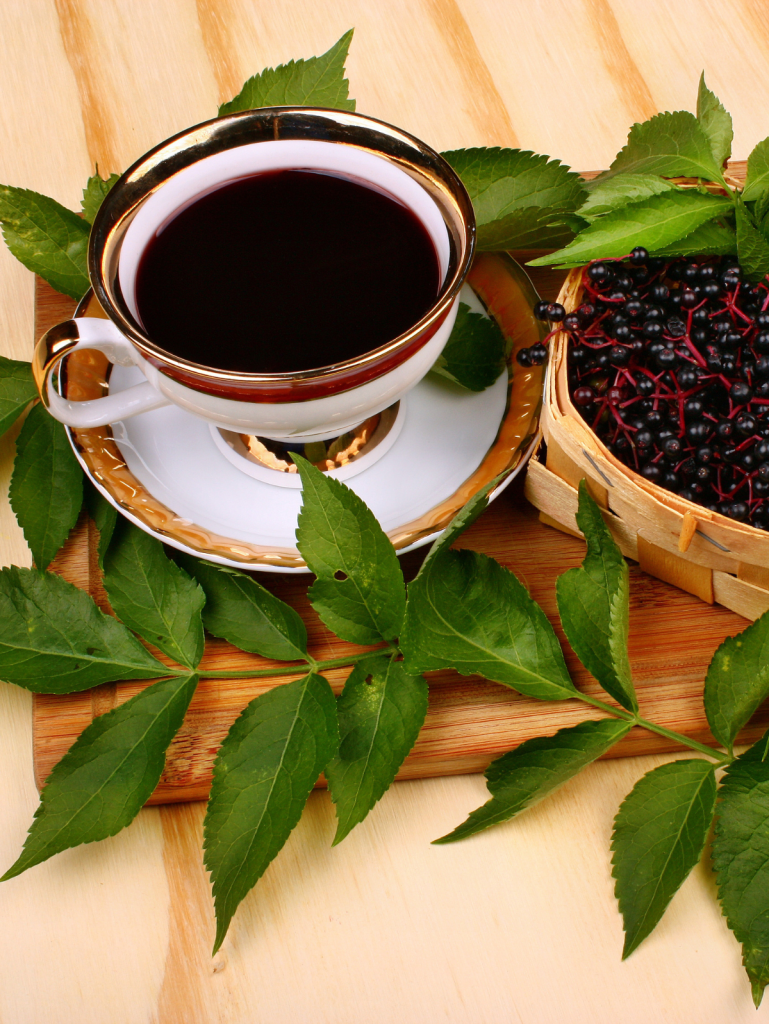
About Elderberry
Looking for a delicious brew that doesn’t just treat your taste buds but also your immune system? Enter elderberry tea, a delightful beverage made from the dark purple berry of the elderberry plant, known scientifically as Sambucus nigra. This not only warms your soul but also packs a punch with a host of health benefits. Whether you’re battling flu symptoms or aiming for general immune support, sipping on this tea offers a tasty way to tap into nature’s medicinal purposes.
Packed with vitamin C and antioxidant properties, elderberry tea can give your immune system the boost it needs. These tiny berries, celebrated in folk medicine, work their magic to help relieve flu-like symptoms, runny noses, and sore throats. Plus, with anti-inflammatory properties and a rich source of antioxidants, it fights those pesky free radicals and may even support heart health.
But it’s not just ancient lore; there’s scientific evidence pointing to elderberry’s benefits. From its potential to ease oxidative stress to aiding a healthy immune system, elderberry supplements have shown positive effects on overall health in systematic reviews. So why not pour yourself a cup and join the ranks of native Americans and the ancient Egyptians who embraced this natural remedy? Cheers to sipping your way to better health!
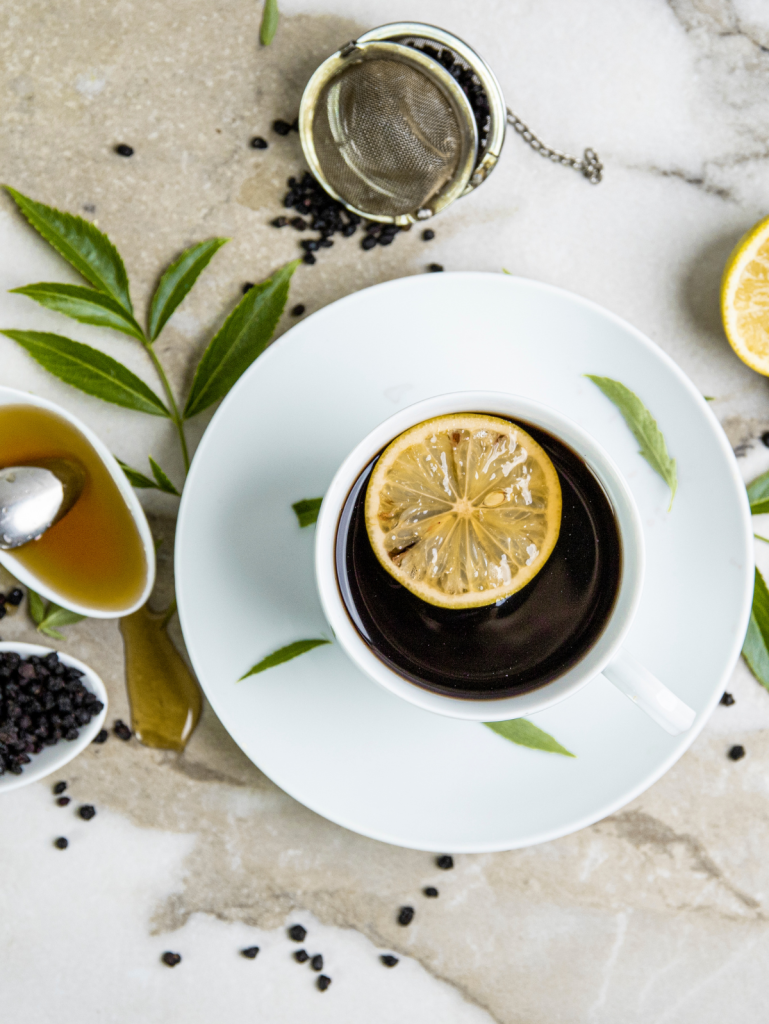
What is Elderberry Tea?
Imagine sipping a warm cup of tea that not only tastes delightful but also packs a multitude of health perks. That’s exactly what elderberry tea offers! Made from the berries of the Sambucus nigra, or black elderberry plant, this traditional beverage is brimming with possibilities. Often used in folk medicine, elderberry tea is cherished for its immune-boosting properties and more. Let’s explore what makes this tea tick!
The Origins of Elderberry Tea
Elderberry tea has roots that stretch back centuries, with its medicinal use traced to ancient cultures. Ancient Egyptians and Native Americans have both tapped into the benefits of elderberries, using them to tackle everything from flu symptoms to sore throat relief. The elderberry tree, with its dark purple berry, has long been considered a medicinal plant that contributes to overall health.
Components of Elderberry Tea
Brewed from dried elderberries or elderberry extract, this tea is a rich source of antioxidants. These tiny antioxidant compounds, like phenolic acids, wage war against free radicals—those tiny troublemakers that can cause cellular damage. Plus, elderberry tea contains vitamin C, which plays a crucial role in supporting a healthy immune system.
Health Benefits of Elderberry Tea
Elderberry tea is not just a tasty way to warm up on a chilly day; it also offers potential health benefits:
- Immune Support: Due to its immune-boosting properties, it’s often included in elderberry supplements meant to fend off upper respiratory infections and flu-like symptoms.
- Anti-inflammatory Properties: The tea’s ability to help with inflammation may provide relief for those with chronic diseases or general aches.
- Heart Health: Some animal studies suggest that it might aid in reducing high blood pressure and cholesterol levels, both of which are key for a healthy heart and blood vessels.
Brewing Tips
When making elderberry tea, it’s essential to know your elderberry products. Avoid using raw elderberries as they contain toxic substances, such as cyanogenic glycosides. Opt instead for tea bags or fresh berries that are safe for consumption. Always consult with a health care provider before adding it to your routine, especially if you’re using it for medicinal purposes.
Uncovering the secrets of elderberry tea is like finding a hidden gem. The use of elderberry spans generations, and modern science continues to explore its positive effects on immune health and beyond. So, why not enjoy a soothing cup and savor its legacy that has lasted through the ages?
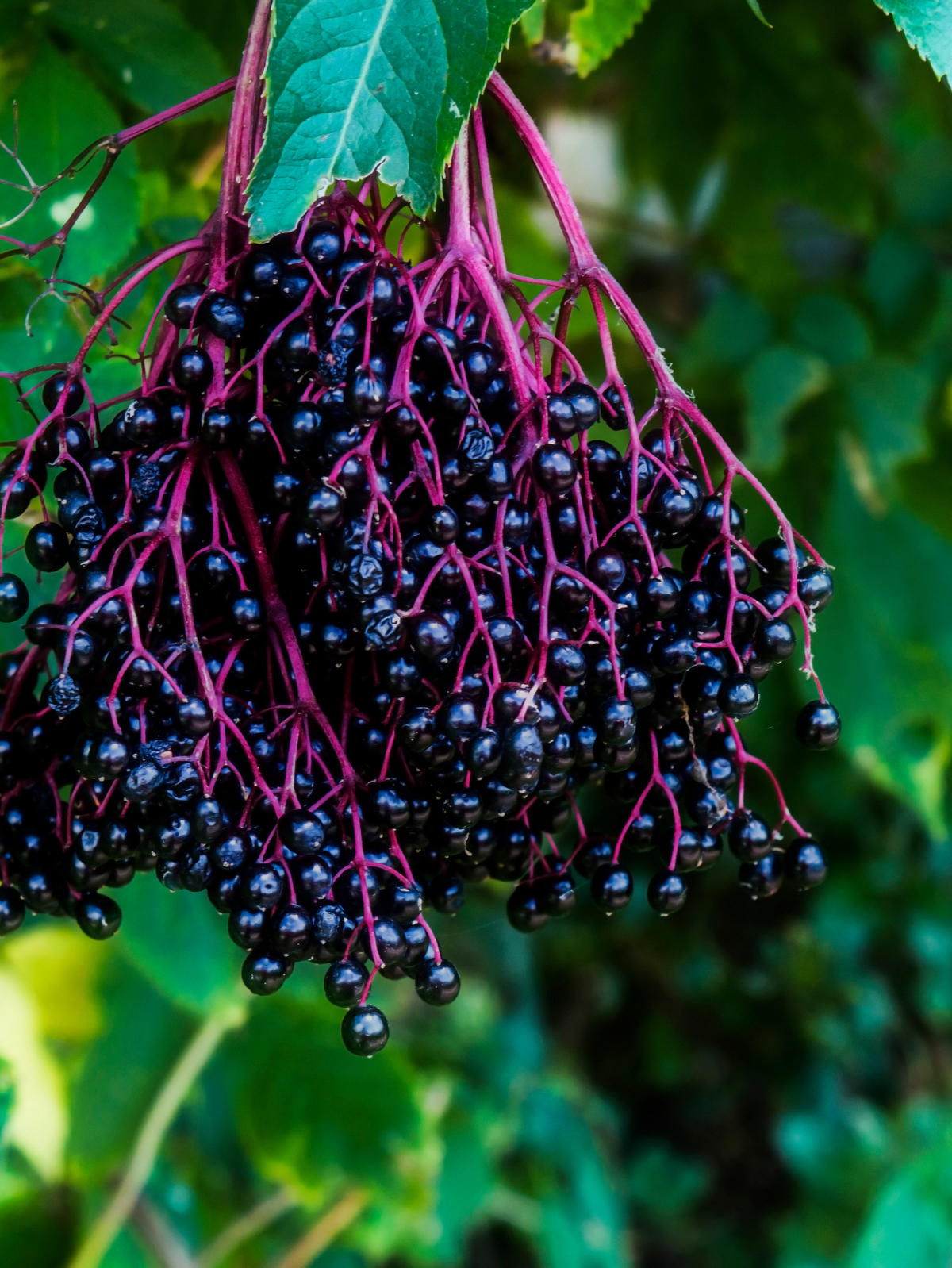
How to Identify Elderberry
When you’re out foraging or just exploring nature, spotting the elderberry plant can be a delightful experience. These magical shrubs both please the eye and pack a punch in the health benefits department. Before you make that perfect cup of elderberry tea, it’s important to correctly identify the plant. Here’s your guide to becoming an elderberry expert!
Recognizing the Elderberry Tree
The elderberry tree, or Sambucus nigra, is a flowering plant often celebrated in folk medicine. Elderberries grow on large shrubs or small trees that can reach heights of up to 30 feet. Let’s dissect what makes this plant unique:
- Leaves: They have groovy, feather-like leaves. Each one is divided into 5 to 9 leaflets with toothed edges, forming an impressive arrangement.
- Flowers: Come spring and early summer, elderberry plants boast gorgeous clusters of white or creamy flowers. These resemble tiny lace canopies and have a sweet, delicate fragrance.
- Berries: The star of the show, elderberries themselves, hang in clusters. When fully ripe, these berries flaunt a dark purple to black hue. Their tart taste is a tasty way to boost a healthy immune system using herbal teas or elderberry tea.
Important Things to Note
Knowing the elderberry fruit doesn’t mean diving in mouth-first. Here are some quick tips to keep your berry-picking adventures safe:
- Poisonous Look-Alikes: Beware of the imposter, the pokeweed! While similar at a glance, pokeweed berries are poisonous. Elderberries are smaller and grow in tighter clusters.
- Raw Berries: Eating raw elderberries might tickle your taste buds, but they contain cyanogenic glycosides, which can release toxic substances when consumed uncooked. Always cook elderberries or use them in elderberry products to avoid flu-like symptoms.
A Rich History
Elderberries have been cherished through the ages. Native Americans utilized the medicinal plant for its immune-boosting properties. In ancient times, both Greeks and Egyptians turned to elderberries for medicinal purposes. Nowadays, their potential health benefits continue to stir scientific interest, thanks to their rich antioxidant properties and other compounds.
Where To Find Them
Elderberries are like globe-trotters of the plant world, flourishing in various corners. They can be found in parts of Asia, across Europe, and even the U.S. Explore national centers, woodlands, or alongside streams where this sambucus tree is likely to thrive.
Armed with this knowledge, you’re ready to distinguish elderberries like a pro. Whether you’re planning a cup of elderberries tea or dabbling in elderberry extract, identifying correctly ensures you reap all the positive effects and immune support this plant has to offer.
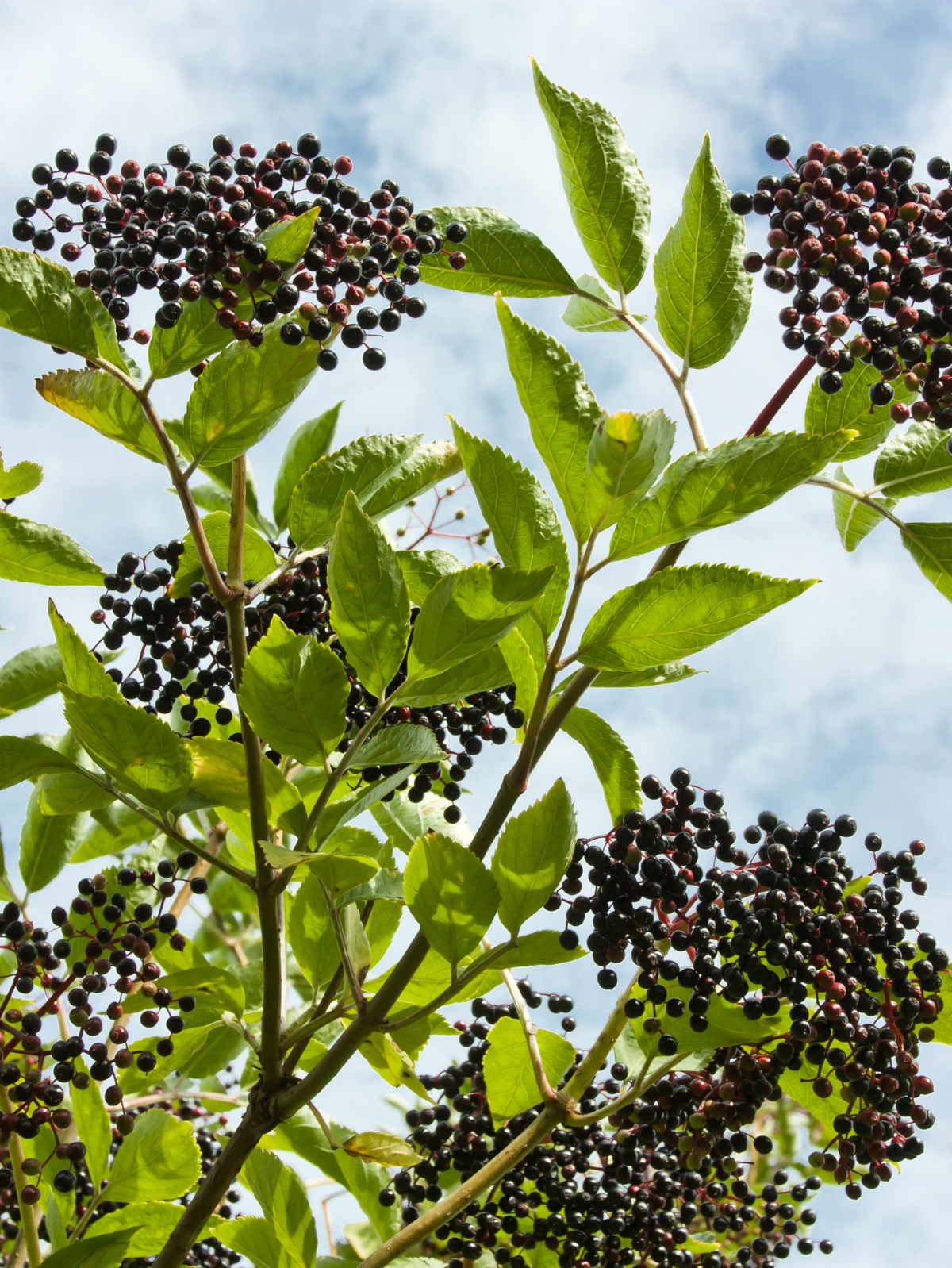
Rich in Antioxidants: The Power of Polyphenols
Elderberry tea, that earthy-flavored magic brew, is famous for its deep, dark purple berries and rich antioxidant properties. These are not your average berries—they’re the fruit of the sambucus nigra, a flowering plant that’s been cherished by the ancient Greeks and native Americans. Packed with phenolic acids and loaded with antioxidant compounds, elderberry tea offers a tasty way to sip your way to better immune health.
Boosting the Immune System
Let’s talk about how elderberry tea boosts the immune system. Just one cup of elderberries delivers a powerful punch against those pesky flu-like symptoms. This medicinal plant is revered for its immune-boosting properties, acting as a shield to fend off common colds and upper respiratory infections.
Imagine your immune system as a superhero. Elderberry tea equips this hero with incredible powers, helping to increase white blood cell counts. This might be why people have turned to elderberry as a natural remedy for centuries, relying on its properties to tackle sore throats and nasal congestion.
If you’re under the weather, a health care provider might suggest elderberry tea as part of your integrative health routine. Whether in the form of fresh elderberries, elderberry juice, or even elderberry supplements, it’s easy to incorporate into your daily life.
Supports Respiratory Health
Breathing easy is the dream during a cold, right? The use of elderberry in folk medicine often centers around its benefits for respiratory health. Clinical trials and animal studies have revealed how elderberry extract might shorten the duration of colds and flu symptoms, with significant improvement reported in some studies.
In one systematic review, drinking elderberry tea appeared to help with easing respiratory symptoms and reducing oxidative stress. Those in the elderberry group showed a decrease in the duration of their illness compared to the placebo group.
So next time a cold clouds your day like a rainstorm, think of elderberry tea as a warm hug that could chase away those clouds. Always consult with your healthcare provider before trying new dietary supplements, especially if you have existing health conditions or take medications through drug administration.
Switching from regular herbal teas to elderberry products might just be the best way to blow away the sniffles and nurse your body to better overall health. So grab a tea bag and steep your way to a healthier you!
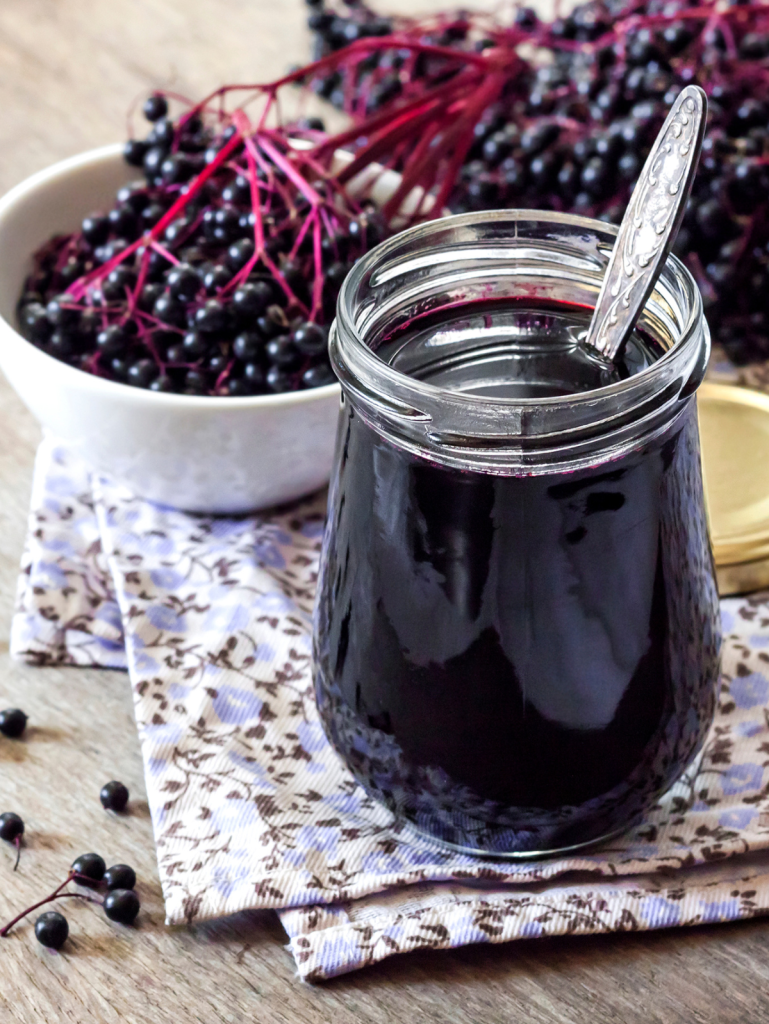
Anti-Inflammatory Properties
If you’re searching for a tasty way to boost your overall health, elderberry tea might just be your new best friend. This rich source of antioxidants boasts significant anti-inflammatory properties, which could be the magical potion you need for a healthy immune system. Who knew that a cup of elderberries, brewed into herbal tea, could transform into such a mighty elixir? Let’s explore how elderberry tea tackles inflammation and its related symptoms.
Relief from Sinus Congestion
You know that feeling when your nose resembles a clogged-up highway at rush hour? Sinus congestion is a common companion of flu-like symptoms and allergies, making both breathing and thinking feel like a Herculean task. Here’s where elderberry tea comes in as a natural remedy. The anti-inflammatory properties of the sambucus nigra, the scientific name for the elderberry plant, might help reduce nasal congestion by soothing irritated nasal passages. It’s like a spa day for your nose!
Elderberry tea can ease that suffocating sensation, helping you breathe a little easier. While enjoying your teacup, you might notice that this dark purple berry carries an earthy flavor with a tart taste, making it an enjoyable herbal tea choice.
Soothing Sore Throats
Have you ever tried speaking with a sore throat and ended up sounding like a croaky frog? It’s not a great way to get your point across. Sipping on elderberry tea might offer some relief. The anti-inflammatory properties found in elderberry extract can work their magic on sore throats, easing pain and reducing irritation. Think of it as a gentle hug for your throat!
Elderberry’s soothing effect has roots in folk medicine, where it has been used for centuries as integrative health support. Whether its roots are in the flowering plant or raw elderberries, elderberry tea is a powerful blend of antioxidant compounds like phenolic acids and vitamin C, known for their positive effects on immune health and fighting free radicals.
Ready to give elderberry tea a shot? Whether you’re looking for a dietary supplement to combat flu symptoms or just want to enjoy a refreshing herbal remedy, elderberry tea is here to soothe and pamper you. Just remember, it’s always wise to chat with a healthcare provider before diving into new dietary habits, especially if you have autoimmune diseases or are concerned about potential side effects. Here’s to breathing easy and speaking freely!
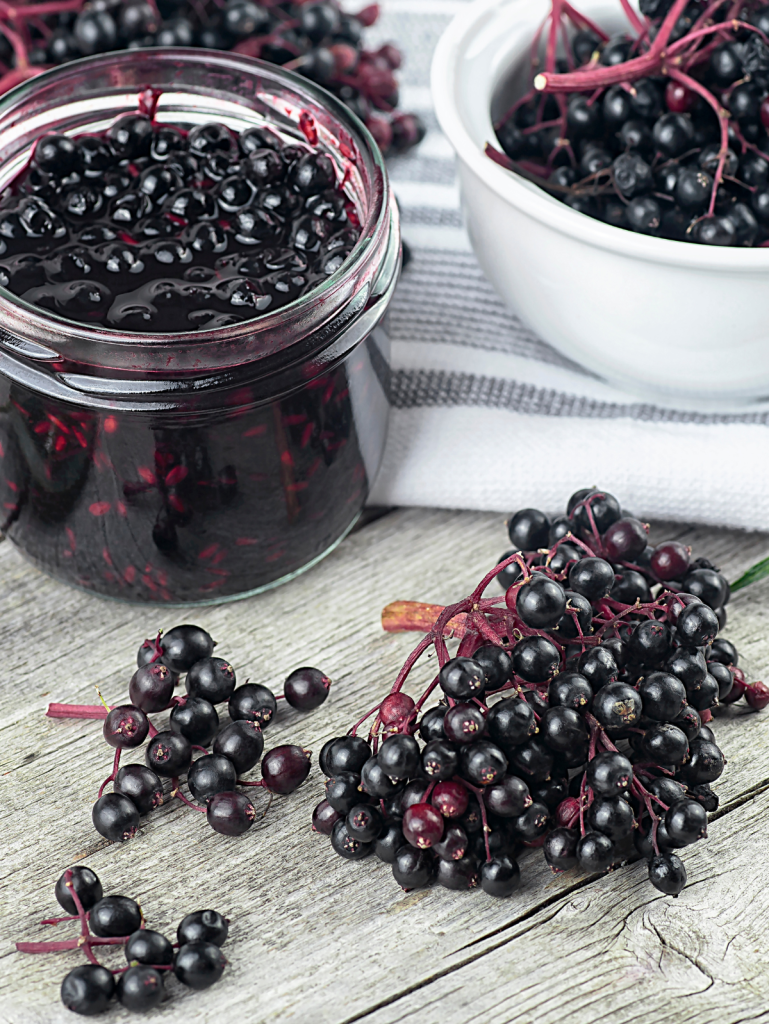
Heart Health Benefits
Ready to dive into the world of elderberry tea and its heart-loving benefits? This magical brew, often hailed from the Sambucus nigra, is not just any tea. Packed with powerful compounds, it’s your heart’s best friend. Here’s a peek into how elderberry tea can work wonders for your ticker:
Lowering Cholesterol Levels
Ever imagined sipping on a tea to help manage cholesterol? Think of elderberry tea as a natural broom sweeping out the bad stuff. The antioxidant properties of elderberry, particularly from the black elderberry, are known to help reduce levels of bad cholesterol. Why does this matter? High levels of bad cholesterol can lead to tough times for your heart, including plaque buildup in the arteries. By incorporating elderberry tea, rich in dietary fiber and phenolic acids, you can enjoy a tasty way to support better cholesterol management.
- Antioxidants to the Rescue: Elderberry tea is a rich source of antioxidants, fighting off free radicals. These villains are notorious for causing oxidative stress, which can lead to higher cholesterol.
- Nature’s Fiber: The dietary fiber in elderberry helps to lower cholesterol as part of an integrated health approach.
So, sip on this natural remedy and let the elderberry extract polish up those blood vessels!
Blood Pressure Regulation
Does the idea of keeping your blood pressure in check sound appealing? Elderberry tea might just be the hero in disguise. Studies, including some clinical trials, suggest that elderberry can help maintain healthy blood pressure. Think of it like a gentle hand keeping the pressure from getting out of line.
- Smoothing the Flow: With its anti-inflammatory properties, elderberry tea helps maintain a smooth flow of blood through the arteries, reducing the risk of hypertension.
- Elderberry Power: The benefits of elderberries, like those from the elderberry plant, show a potential health benefit in regulating blood pressure through their influence on blood vessels.
While these findings are promising, it’s always wise to chat with a health care provider before making any major changes for heart health. Keep enjoying your cup of elderberries!
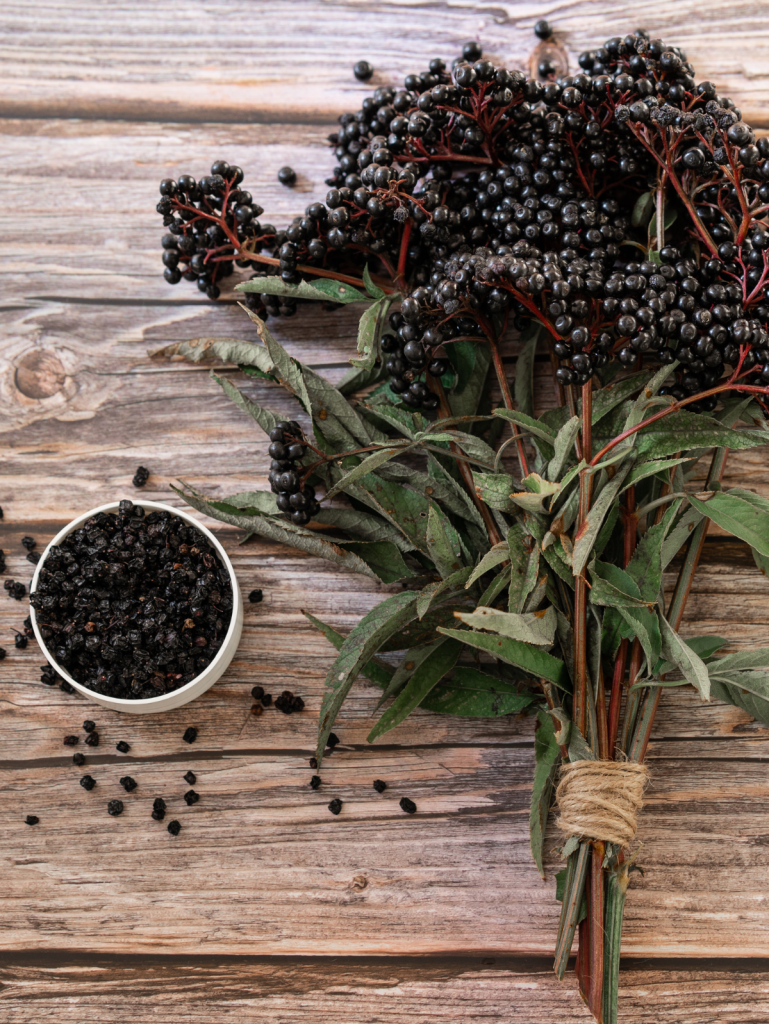
Digestive Health and Elderberry Tea
Ever wondered how elderberry tea could be the unsung hero of your digestive health? This magical brew, known for its punchy tart taste and deep purple hue, isn’t just a folklore favorite. Let’s explore how this delightful tea can help keep your digestive system in check.
Rich in Fiber
Dietary fiber is like the broom of your digestive system. It sweeps through your intestines, keeping everything moving smoothly. But why is fiber so crucial? For starters, it helps maintain bowel regularity and can even play a part in controlling those pesky blood sugar levels.
Elderberry tea, brewed from the european elderberry, or Sambucus nigra, is a winner in the fiber department. The elderberry plant, with its rich source of antioxidants and dietary fiber, offers a tasty way to support your gut health. Whether you’re sipping a soothing cup of elderberry tea or enjoying the tart taste of elderberry juice, you’re giving your gut the fiber boost it needs. Just be mindful! Raw elderberries can be toxic due to cyanogenic glycosides, so always enjoy them in tea or cooked form.
Promoting Gut Flora Balance
Our bodies host a bustling community of bacteria, which sounds like a party, right? This community, known as the gut microbiome, plays a crucial role in digestion. Elderberry tea is a natural remedy that can help promote a healthy balance in this microbial metropolis. How? Thanks to its antioxidant properties and phenolic acids, elderberry tea offers a supportive environment for beneficial bacteria to thrive.
Imagine elderberry tea as the friendly neighborhood watch of your gut, keeping things in balance and chasing away bad bacteria. By adding this medicinal plant to your diet, you could help fend off digestive woes and even contribute to your overall health. Plus, with its immune-boosting properties, it’s a great way to give your body a little extra TLC, especially when you’re facing flu-like symptoms or sore throat.
Incorporating elderberry tea into your daily routine might just be the good reason you’re looking for to sip on herbal teas more often. So, next time you’re feeling peckish for something warm and comforting, reach for a tea bag of elderberry and enjoy the beneficial effects it brings to your gut health!
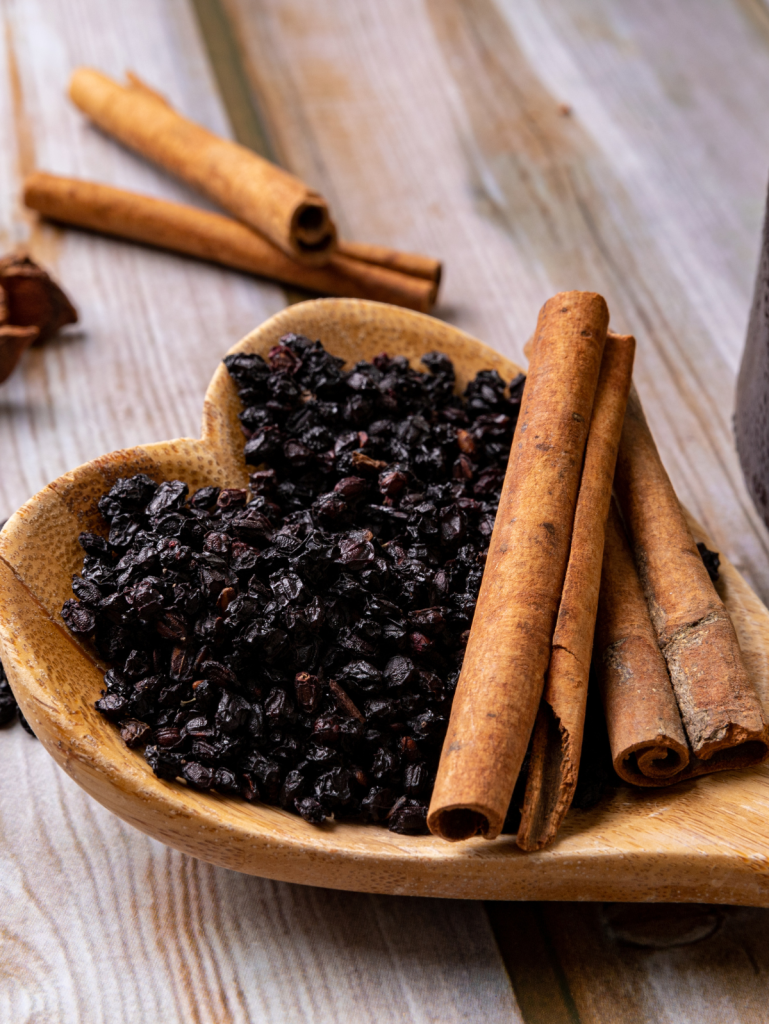
How to Brew the Perfect Cup of Elderberry Tea
A cup of elderberry tea can be a warming hug in a mug, blending health benefits with an earthy flavor that feels like a cozy blanket on a chilly day. Beyond its comforting taste, this elderberry plant infusion is famous for its rich source of antioxidants and potential health benefits, including immune support and heart health. Ready to brew your own? Let’s get into the details of choosing the right ingredients and timing your tea for maximum enjoyment!
Choosing the Right Elderberries
When it comes to making elderberry tea, quality is key. Not all elderberries are created equal, and picking the right ones is like finding the best apples for a pie—crucial for flavor and health.
- Dried Elderberries: Look for dried elderberries that are dark and plump, a sign they’ve been harvested at peak ripeness. Avoid any that look shriveled or pale. These dark purple berries contain antioxidant properties that help fight free radicals and oxidative stress.
- Tea Blends: If elderberry tea blends are more your style, check the label to ensure you’re getting a good amount of Sambucus nigra, the scientific name for European elderberry. Look for blends that combine elderberries with other immune-boosting herbs like ginger or echinacea.
- Quality Assurance: Whether choosing raw elderberries or a pre-packaged tea bag, make sure it’s from a reputable source. Some elderberry products can contain toxic substances if not processed correctly due to natural cyanogenic glycosides present in raw berries.
Timing and Serving Suggestions
Timing is everything, especially when it involves sipping a steamy brew that offers immune-boosting properties and a tart taste.
- Perfect Timing: Some folks swear by sipping a cup of elderberry tea first thing in the morning or an hour before bedtime. Drinking it on an empty stomach can potentially maximize absorption of antioxidants and phenolic acids, giving your immune health a gentle nudge.
- Serving Suggestions: Enhance your tea’s flavor with a squeeze of lemon or a dollop of honey. Lemon adds a refreshing zest, while honey not only sweetens the deal but may soothe a sore throat. Pairing these with elderberry extract, known for its anti-inflammatory properties, might just turn your tea into a natural remedy for flu symptoms or common colds.
- A Cozy Ritual: Consider making this herbal tea part of your daily ritual, akin to a calming yoga session for your taste buds. Whether you sip it leisurely while reading or meditate on its warmth, this tea can be more than just a drink—it’s a moment of peace to start or end your day.
Remember, while elderberry tea is a delicious way to enjoy immune support and integrative health, it’s always a good idea to consult a health care provider for medical advice if you’re pregnant or managing an autoimmune disease. Enjoy your brew with the knowledge that you’re partaking in a tradition that traces back to Native Americans and ancient Egyptians, who recognized the potential health benefits of this miraculous flowering plant. Happy sipping!
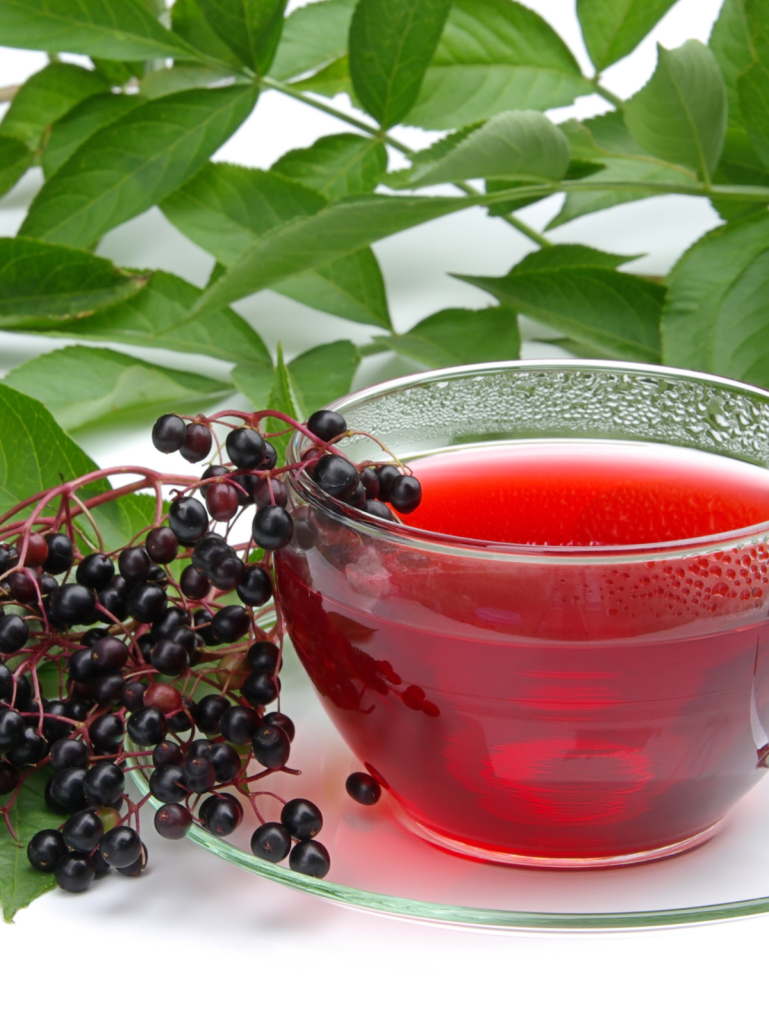
Final Thoughts
With a history as rich as its earthy flavor, elderberry tea bursts with healthful punches that are hard to ignore. Packed with antioxidant properties and immune-boosting prowess, this delightful beverage makes a tasty way to support overall health.
Grab a cup of elderberries and sip your way to vibrant wellness, enjoying the potential benefits of elderberries like heart health support and flu symptom relief.
Remember to chat with a healthcare provider if you’re considering elderberry supplements or elderberry extract, especially if you have autoimmune diseases or are on medication.
Why not steep a tea bag and let the elderberry plant become your daily health champion? Embrace this playful berry as part of your integrative health routine and feel the positive effects unfold.

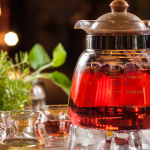
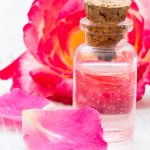
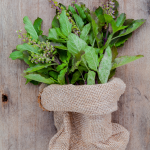
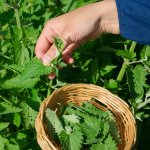
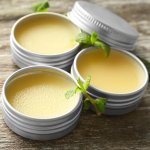

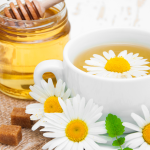
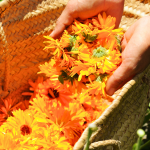
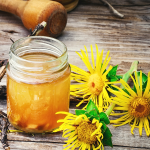
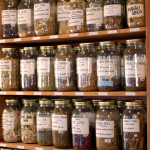
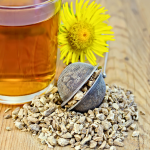

Leave a Reply